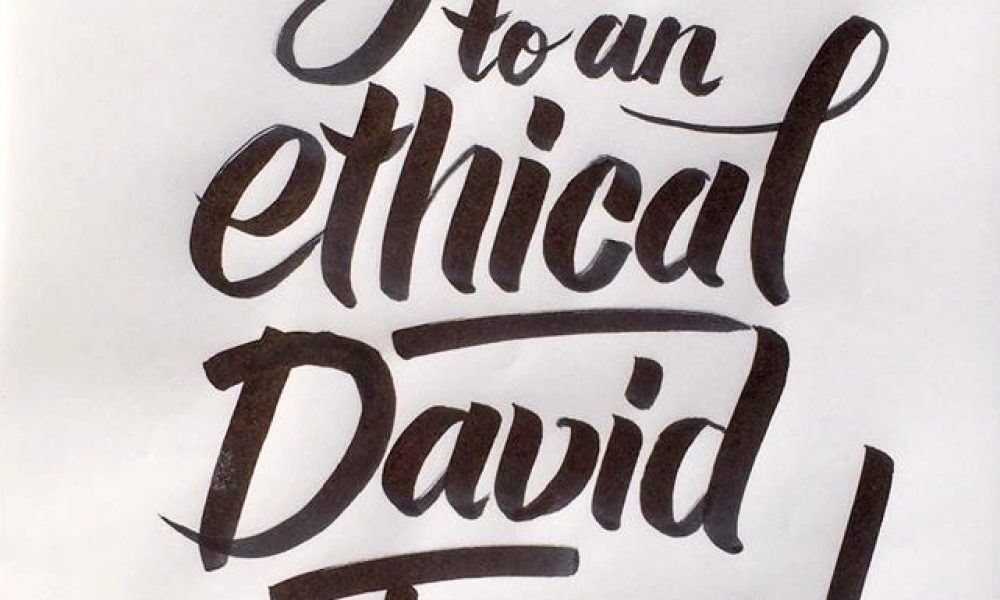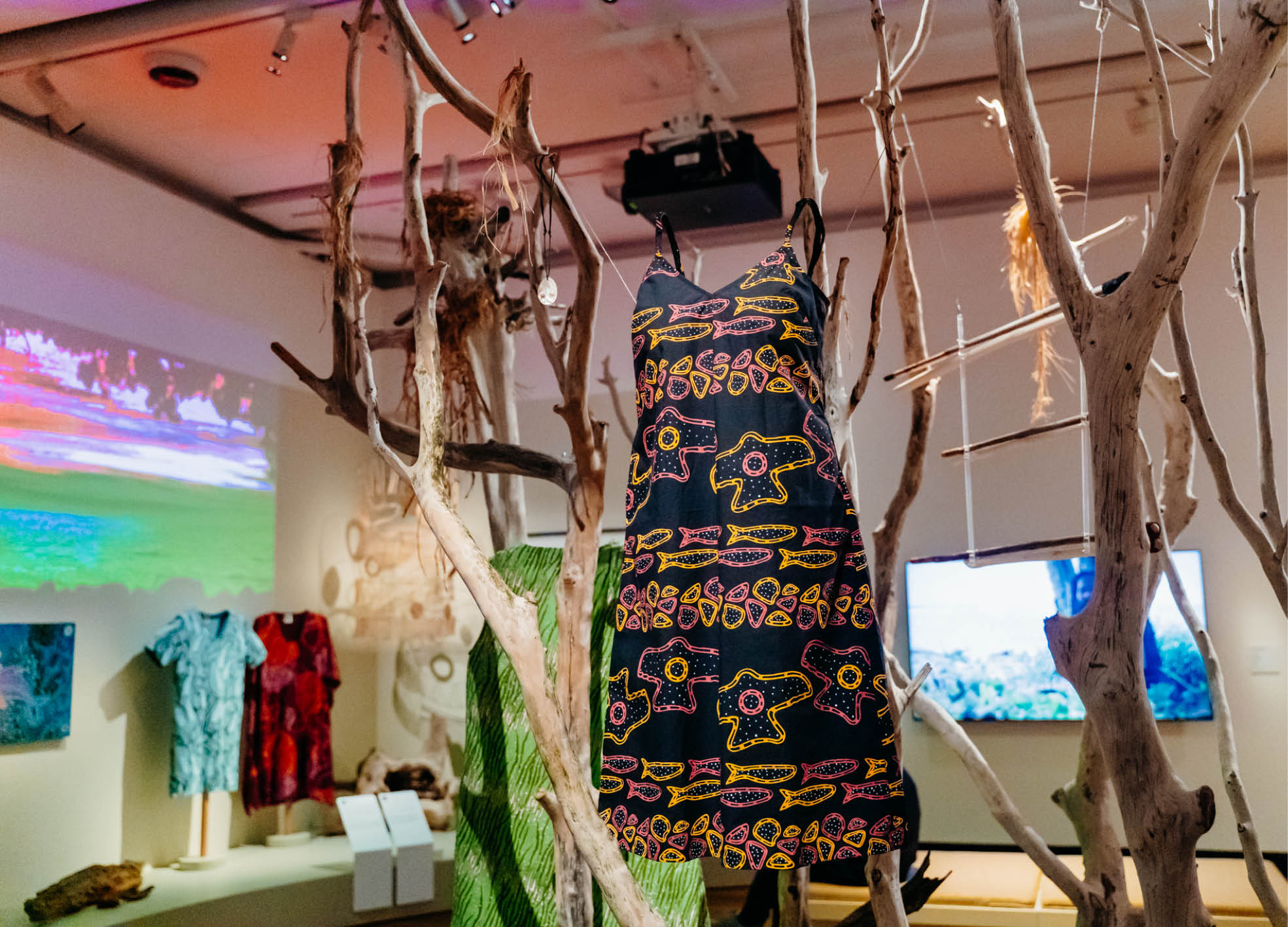The New Home of Ethical Shopping?

- Words by Peppermint
Walking into a busy department store and finding yourself surrounded with nothing but ethical products sounds like a distant dream. But what if your local mall became the next ‘it’ destination for conscious shopping? If David Jones gets its way, all 39 of its retail branches will soon be one-stop shops for brands who demonstrate a commitment to workers’ rights and responsible environmental practices. Last week, CEO Ian Nairn told the Sydney Morning Herald about DJs’ ambitious new plan to fill its racks and shelves with nothing but “sustainable, environmentally friendly, and child and slave-labour free” items. It’s certainly an admirable vision, but is it an achievable target?
One of the country’s biggest retailers, David Jones is also the oldest continually operating department store in the world. Over time, it has had to keep up with major changes to the retail landscape, especially here in Australia. DJs is already home to a handful of Ethical Clothing Australia (ECA) accredited labels, including Ginger & Smart, Jets swimwear, Nobody denim and Roopa Pemmaraju (look out for our interview with Roopa in the next issue of Peppermint). But this month’s announcement takes the retailer’s fair fashion commitment to a whole new level.
As well as increasing the number of ECA brands in stock, DJs wants to support young and upcoming Australian designers to build their businesses along ethical lines. Leveraging an already huge share of the market, it’s also a chance to expose many thousands more consumers to ethical brands, hopefully creating more demand and injecting more money into the industry in the process.
It seems that DJs have a clear vision for change while other retailers choose to stay silent, but that’s not to say the retailer hasn’t shouldered its fair share of criticism in the past. In 2013, DJs were thrown into a heated fast-fashion debate regarding their partnership with Mango, a Spanish label with direct links to the Rana Plaza tragedy. But rather than cutting ties with such brands, David Jones now wants to champion accountability among its suppliers, which means enforcing the standards laid out in their Ethical Sourcing Program and Supplier Code of Conduct. Change is evident in this arena too: the company recently received a nod when management signed onto the Cotton Pledge, demanding traceability from suppliers who must avoid using un-sustainably grown cotton from Uzbekistan whenever possible.
Not surprisingly, fashion accounts for 65% of David Jones’ business, but this new ethical promise doesn’t stop at garments and accessories. The retailer wants to see standards shift right across the board, including in the cosmetics and electronics departments – which could be an even tougher battle ground to fight on. Will DJs meet its target or will some brands fail to get on board? What consequences will there be for non-compliant suppliers, and will DJs set a date to achieve these goals by? Only one thing’s for sure: there are now more than 1,600 DJs-stocked brands that have a new impetus to change for the better, and that can’t be a bad thing.
Image via Germaine Leong.
JOIN OUR MAILING LIST
Brighten up your inbox with our not-too-frequent emails featuring Peppermint-related news, events, competitions and more!
explore
More articles
It’s beginning to look a lot like Christmas…. Which means we are officially entering party season. Work parties, friend-dos, family get-togethers and then we’re straight into New Year festivities. If you’re lucky enough, you might be staring down the barrel…
Look, I don’t want to make anyone panic but IT’S DECEMBER!!! If you’re planning to give homemade gifts, you’re going to have to act fast. …
Furred, feathered, fishy, scaled… The pets we choose are as diverse as our personalities. (And apparently, quite often we resemble each other.) But they all…
When you hang a painting on a wall, the story stays put. But when you wear a beautifully made garment that may as well be…
Hang out with us on Instagram
It’s all a lot, isn’t it?
We weren’t designed to carry this much emotional grief and world-wide trauma on an ongoing basis. Just know you’re not alone. It’s ok to not be ok. 🫶🏻
Image from @PeopleIveLoved: “I am not sure my tiny brain was meant to understand this enormous grief.”

“We love that we can bring a hint of imagination and whimsy into everyday life by making ordinary objects fun. We’ve learned to appreciate the little wins and to take a moment for each step we achieve.”
Disillusioned by the realities of fast fashion, design grads Emily May and Sidonie Moore ditched clothing for a business that finds fun in the everyday. Enter @TheNonsenseMaker: a collection of unique homewares, fun wall art, greeting cards and more that breathe life into Emily’s illustrations: “I love the idea of taking real-world objects and changing your perspective in a way that brings magic and whimsy into everyday life!”
In issue 64’s feature ‘It all makes sense’, we chat to the Naarm/Melbourne-based duo about their sustainability philosophy, TV re-runs and their commitment to local makers. At stockists now!
Photos: @MeAndMyGirl
#PeppermintMagazine #TheNonsenseMaker #LocalMakers #SustainableCraft

Any New Year’s resolutions on your list? We love this from @OtterBeeStitching - “be brave enough to suck at something new”.
There’s no points for perfection, but you’ll get a trophy for trying. If nothing else this year, take the leap and try something new.
#OtterBeeStitching #Embroidery #BeBrave #TrySomethingNew #EmbroideryArt

Sunday serving suggestion ☀️
Gorgeous photos from @JolieFemmeStore - who make sweet garments from vintage bedsheets.
#PeppermintMagazine #SlowSunday #SwitchOff #Unplug #ReadAMagazine

A toast to the old you 🥂
We wholeheartedly love this post from the brilliant @EmilyOnLife:
“2026: Reinvent, burn it down, let it go (whatever it is). Year of the Snake it up. Exercise your boundaries, exercise your body, take one teeny step every day towards a life that feels better to be in.
But don’t you dare shit on your old self while you do it.
Hold yourself with reverence and tenderness and respect, because you got you this far. You did your very best with the information and tools you had at the time. You scraped yourself together, you made it work, you survived what felt impossible to survive: again and again and again.
You are perpetually in the process of becoming, whether you can feel it or not, whether or not you add it to your 2026 to-do list.“

Some very wise words from @Damon.Gameau to take us into 2026 🙌🏼

















